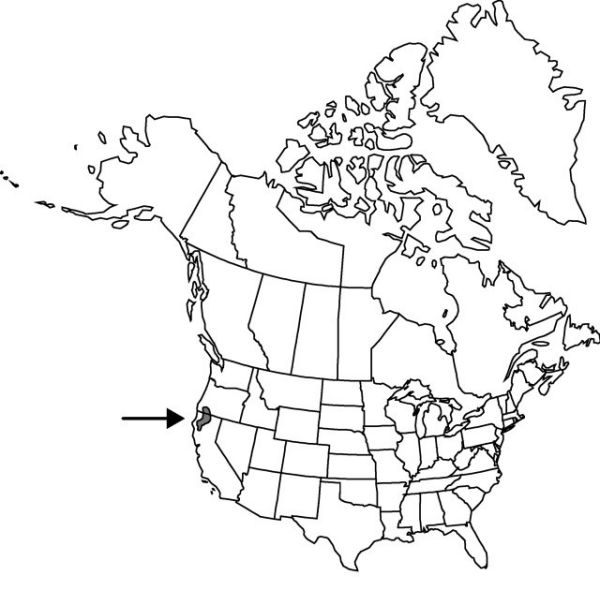Hastingsia serpentinicola
Madroño 36: 208, figs. 1, 3. 1989.
Bulb narrowly ellipsoid, 23–41 × 13–21 mm, usually without blackish, fibrous tunic. Leaves (19–) 21–27 (–35) cm × 2–6 mm, mature plants often without shriveled foliage at base of scape; blade grayish green. Scape 29–51 cm, rarely with 1–3 ascending branches, 1–2 mm thick at base. Inflorescences: terminal raceme (4–) 7–12 (–35) cm; flowers (12–) 24–35 (–48) per 10 cm of raceme. Flowers: tepals whitish to greenish or yellowish white with greenish or light purplish central vein, narrowly lanceolate, 4–6.5 × 1–2 mm; stamens fully exposed at anthesis; filaments 4–7 mm; anthers often light purple. Capsules ellipsoid, 5–7 × 3–6 mm. Seeds gray-green to black, 3.5–4.7 mm. 2n = 52, 54.
Phenology: Flowering May–Jun, fruiting Jul–Aug.
Habitat: Ultramafic or serpentine rock outcroppings, bogs
Elevation: 300–2200 m
Discussion
Hastingsia serpentinicola grows in open sites that are moist in the early spring and dry out rapidly in the summer. It often occurs along the edges of Darlingtonia bogs or on the drier islands within the bog environment. At high elevations, it occurs on exposed serpentine ridges, usually close to wet habitats.
Selected References
None.
Lower Taxa
"broad" is not a number."thicker" is not a number.
